Key Takeaways
Part-time hosting can generate meaningful income without taking over your life
Clear systems and communication make hosting manageable alongside other work
Understanding Airbnb’s rules, guest expectations, and property preparation is essential
Automation and outsourcing help part-time hosts stay efficient
Ever wonder how some people manage to juggle full-time jobs, family life, and still pull in extra income from Airbnb? You might picture them spending hours greeting guests or scrubbing bathrooms, but the truth is, many part-time hosts run successful listings with surprisingly little disruption to their daily routines.
The appeal is clear: a way to earn extra money, meet new people, and make use of a spare room or second property, all without committing to a round-the-clock hosting schedule or hours glued to their phone screen.
Sounds wonderful, but there is a small catch. Airbnb isn't a get-rich-quick scheme, and doing it well takes more than uploading a few photos and sitting back with your feet up, waiting for bookings to roll in.
In this blog, we’ll break down a step-by-step guide to becoming a part-time Airbnb host, so you can get started with honest expectations and begin preparing your property right from the get go. By the end, you’ll know exactly what it takes to host part-time in a way that feels rewarding instead of overwhelming (and understand whether it really is possible to be a part time Airbnb host, after all).
Let's get into it!
Why Part-Time Airbnb Hosting Is Gaining Traction
Ask any part-time Airbnb host how they got started, and the stories usually sound familiar. Some had a spare room sitting empty after a child moved out. Others spent half the year travelling for work and thought, “Why let the house sit there unused?” A few even dipped their toes in by renting out their place during big local events, only to realise it could be a regular source of income.
Unlike a second job where you’re stuck to a rota, Airbnb lets you decide when to host and when to switch off. If you’ve got a busy month ahead, you can block out the calendar. If you’re saving for something special, you can open up more weekends. The flexibility is in your hands, which is why so many people find it appealing.
There’s also the financial side. Even hosting part-time can earn meaningful income, enough to cover rising utility bills, ease mortgage payments, or maybe even pay for that holiday you’ve been putting off. Many hosts are surprised by how quickly those occasional bookings add up, especially in high-demand seasons.
And then there’s the human element. Hosting isn’t only about transactions—it’s about welcoming travellers into your space, hearing their stories, and sharing a slice of your world with them. For some, that social connection is as rewarding as the extra income. It breaks up the routine of everyday life and adds a little variety, all without demanding a full-time commitment.
Put simply, part-time hosting works because it blends freedom, income, and connection in a way that few other side hustles can match. Still, it’s not entirely passive. You’ll need clear systems in place, like automated guest messaging, synced calendars, reliable cleaners, and a plan for emergencies. Without some upfront effort and the right support, a part-time rental can quickly become a second job.
So, how can you get started as a part time host? Here are our five steps to follow.
Save yourself from your inbox
Automate with Uplisting
Automated guest messages keep your guest informed from booking through to check-out. They’re designed to answer questions before they arise, saving you time whilst keeping your guests happy.
Step 1: Decide If Hosting Really Works for You
Before you start snapping photos or drafting your listing, take a step back and ask yourself if Airbnb hosting really fits your life. On the surface, it seems simple: Open the door, hand over the keys, and wait for the money to roll in! In practice, even part-time hosting requires effort, organisation, and a willingness to deal with the unexpected. The truth is that Airbnb hosting is not as passive as the Instagram-gurus will have you believe.
Think about your space first. Do you have a spare room, guesthouse, or second property that’s truly guest-ready? Is it private enough that strangers staying there won’t intrude on your day-to-day life? A cluttered storage room with a bed squeezed in isn’t the same as a comfortable, welcoming space. Guests notice the difference.
Next, consider your schedule. Are you prepared to answer booking enquiries quickly, even if you’re busy at work or out with friends? Can you commit to cleaning or arranging cleanings between guests? While part-time hosting doesn’t have to eat up your whole week, it does require a base level of consistency.
Lastly, weigh up your motivation. Are you doing this purely for extra income, or are you also interested in meeting people and offering hospitality? Knowing your “why” helps you set the right expectations for yourself and your guests, and helps you see whether Airbnb will be a fun side hustle or another thing to add to an already-burdgeoning to-do list.
By honestly checking in with yourself at the start, you’ll save time later and avoid the stress that comes from jumping in unprepared.
Step 2: Prepare Your Property for Guests
Before the calendar opens and bookings start, the space needs to be ready. That means it's not just livable, but actually worth the nightly rate. Photos might grab attention, but what guests see when they arrive decides whether they return or leave a long review.
Stock furnishings and amenities guests expect
Guests want a place that feels clean, comfortable, and thoughtfully arranged. Start with a real bed (no foldouts or air mattresses here!) and add seating that’s solid and comfortable. Include lamps, nightstands, and storage people will actually use. A few hooks and a luggage rack go a long way.
In kitchens and bathrooms, skip the guesswork. Every guest expects:
Bathroom: A full towel set per person, soap, extra toilet paper, a plunger, and a clean trash bin with liners.
Kitchen: Plates, mugs, cutlery, basic cookware, dish soap, a sponge, and a simple coffee setup.
Bedroom: Extra pillows, blankets, and blackout curtains to block early morning sun or streetlights.
No one’s asking for five-star luxury. But comfort, convenience, and cleanliness? They're absolutely non-negotiable.
Do safety checks and meet local requirements
Safety isn’t optional. Install working smoke and carbon monoxide detectors in the right places and test them regularly. Place a fire extinguisher where guests can find it fast. Make sure exits are clear and easy to open, especially in basements or older homes.
Local governments often require permits, safety inspections, or specific hardware like deadbolts and window locks. Some areas also need hosts to register for taxes or display emergency contact info onsite. These rules vary widely, so call the local housing office before listing. It’s faster than fixing a violation or dealing with a suspended account.
Don't forget about local short term rental regulations. Many cities and towns now require short-term rental permits, safety inspections, or specific security measures like deadbolts, keyed locks, or window latches. Some areas also ask hosts to display emergency contact information inside the property, or to register for occupancy taxes. The rules can change quickly, and they vary from place to place, even from one neighbourhood to the next.
It’s worth making a quick call to your local housing or licensing office before you list your property. Spending an hour upfront is far easier than dealing with a violation, a fine, or worse, a suspended listing once bookings are already coming in.

Create 5-star guest experiences
Give your guests unforgettable experiences
With Uplisting, you can send the right messages at the right time on all booking sites. Read and respond to guest messages in a single, unified inbox — whether you’re at the office or on the go.
Step 3: Set Up Your Airbnb Listing
A blank listing page won’t bring in bookings. You need to setup an Airbnb listing that’s clear, guest-friendly, and built to convert.
Write a description that answers real guest questions
Skip adjectives like “cozy” or “charming” unless you’re ready to show what makes the space feel that way. Focus on what guests want to know: the number of beds, what kind of mattress is on each, how the check-in works, and what’s stocked in the kitchen or bathroom. Be direct. A short paragraph about the layout, another on amenities, and one more explaining access usually does the trick.
Mention any quirks early. If the stairs creak or the driveway is steep, say so. That kind of honesty builds trust, avoids complaints, and filters out guests who wouldn’t be happy there anyway.
Break up long blocks of text so people can skim. Most guests are reading on their phones while multitasking so keep the format easy to scan.
Price for flexibility, not perfection
Full calendars aren’t the goal here, but smart pricing is. If you only host on weekends or around holidays, use the demand to your advantage. Short bursts of availability can still earn strong income, but only if you set rates that reflect the value and timing.
Start slightly below similar local listings while you build reviews. Once you’ve earned consistent five-star feedback, raise prices to match your quality. Avoid setting one flat rate across all dates. Instead, adjust weekly based on local events, seasonality, and what similar listings are charging.
If you’re manually updating rates, set a recurring reminder. A forgotten calendar with outdated prices can cost you bookings.
Emphasize what actually makes your place different
Show what makes your space worth booking and do it early in the listing.
Call out anything that improves the stay: a fenced yard for pets, a quiet workspace with fast Wi-Fi, blackout curtains in the bedroom, or walkable access to restaurants. Use specific details and avoid vague phrases like “great location.”
Here are a few examples that guests actually look for:
Remote work setup: A full-size desk, ergonomic chair, and strong Wi-Fi connection.
Pet-friendly layout: Fenced backyard, nearby dog park, and food bowls included.
Family support: Crib, high chair, and baby gates already in place.
Think like a guest planning a trip. What would help them say yes to your place over another? Put that in the first few lines of your description, and make sure the photos back it up.
Step 4: Get Serious About Bookings and Guest Communication
The listing's live. Now the messages start rolling in. (Hopefully!)
Some guests want to know if they can check in early. Others ask where to park, even after reading the listing. A few will cancel, rebook, ask again, and then ask again. Staying on top of booking requests and guest messages without burning out is where part-time hosting has the potential to become a second job.
Choose between instant book and request to book
Instant Book speeds up reservations and usually improves listing visibility. There’s no back-and-forth, no approval needed. If the calendar’s open and a guest meets the requirements, the booking goes through. That’s good news if your schedule is tight or you want to avoid last-minute coordination.
Request to Book gives a little more control. You get to vet who’s staying, why they’re visiting, and any previous reviews, before you accept their booking. That can help when the space has quirks, when you're sharing the space, or you’ve had past issues with certain stays. Just keep in mind, waiting too long to respond drops your response rate, and guests rarely wait around if there are other options available.
If the hosting setup runs smoothly and you’ve got strong filters in place (like verified IDs, positive reviews, and strict house rules) Instant Book can save time. But if more control matters right now, Request to Book still works. Just be ready to reply quickly.
Set expectations early and repeat them
Most guest complaints start with miscommunication. One person expects street parking right in front. Another assumes early check-in. Someone else didn’t realize the unit shares a wall with a neighbor. The best way to prevent confusion? Spell out every detail before guests arrive.
Include the basics in your confirmation message:
Check-in and check-out times
Parking instructions
Wi-Fi network and password
House rules: total guests allowed, quiet hours, smoking policy, pet policy
What’s included (and what’s not)
How and when to reach you
Don’t rely on people to reread the listing. They won’t. Repeating key info in follow-up messages makes life easier for everyone... Especially you.
Save time with templates and quick replies
Guest questions follow a pattern. Most people ask about check-in, Wi-Fi, trash, or local recommendations. Instead of typing the same message over and over, create templates. Keep a short list of standard replies ready to go.
Set up messages for:
Use quick replies for one-off questions like how to reset the router, where to find the nearest grocery store, or what to do with recycling. Keep the tone clear and friendly, like you’re helping a friend, not giving instructions to a stranger. The faster the reply, the fewer follow-ups.
Learning how to be a part time host Airbnb-style means working smarter, not longer. When messages are clear and systems are tight, guests feel taken care of and you don’t have to be glued to your phone to get there.
You’re in great company
Sign up
Some of the largest short-term rental operators (with 250+ properties) rely on Uplisting's software to scale their businesses.
Step 5: Use Tools and Support to Save Time
Part-time hosting only works when the hours stay part-time.
Without reliable systems, tasks pile up fast, like messaging guests, updating calendars, coordinating cleanings. We know you didn’t sign up to spend your evenings replying to the same questions or fixing double bookings, but it's only when you have the right setup cuts that you'll find your time opens up again.
Automate repeat tasks to reduce manual work
Guests expect fast responses, clear directions, and reminders that feel personal. Instead of typing the same message every time, schedule replies to go out automatically based on triggers like booking confirmations, check-in days, or checkout reminders. Once set up, scheduled messages cover the basics without needing constant attention.
When listing across multiple booking sites, synced calendars are non-negotiable. Channel managers connect calendars and rates across platforms, so dates update automatically. No more calendar gaps or last-minute cancellations from double-booked weekends. A centralized system also means fewer tabs, fewer logins, and less chance of missing something important.
Hire help where it counts
Cleaning after each stay is necessary. Doing it all yourself isn’t. A reliable cleaner who understands fast turnovers, consistent presentation, and short-term rental standards can save hours and reduce stress. Share a checklist tailored to your property so guests always walk into a space that feels fresh and ready.
For hosts with limited availability or frequent travel, a co-host can step in to handle daily operations. Co-hosts manage guest communication, coordinate with cleaners, restock supplies, and monitor performance. You stay in control, they handle the logistics. Many part-time hosts start solo, then bring in help as the calendar fills up.
Keep operations lean and focused
Managing a short-term rental doesn’t need a dozen apps or daily check-ins. A simple setup can handle the core tasks without slowing you down. Focus on tools that centralize your calendar, guest communication, and task tracking.
What to streamline:
Calendar: Sync all booking sites to avoid overlap and confusion.
Inbox: Route guest messages into one place to stay organized.
Task tracking: Use one checklist for cleanings, restocking, and maintenance.
Knowing how to be a part time host Airbnb guests remember for the right reasons comes down to smart prep and efficient systems. When the setup works behind the scenes, you're free to focus on what actually matters—guest experience and earning without the burnout.
Balancing Hosting with a Full-Time Life
TikTok finance gurus present a world where Airbnb hosting part-time sounds flexible and the money keeps rolling in... But they don't show the lowlights, like when your phone lights up with a guest emergency during a meeting or you're scrubbing a toilet at 11 p.m.
Without clear structure, hosting can bleed into every spare moment. You don’t need more hours, you need better use of the ones available.
Set availability around your real schedule
Not every open date is worth the stress. Block off weekends packed with work, family, or anything else that needs your focus. Your calendar should reflect your actual availability, not wishful thinking. Guests won’t book unavailable dates, and that’s exactly the point.
One more booking during a packed week might look good on paper, but if it stretches your patience or delays a reset, it’s not worth it. Set booking windows that match your capacity, two weekends a month, specific holidays, or just one stretch per season. Regular, manageable hosting beats a packed calendar every time.
Automate time-draining tasks
Manual replies, repetitive messages, and constant check-ins eat into your day faster than you think. Set up scheduled messages for booking confirmations, arrival instructions, check-out details, and anything else guests repeatedly ask. Let automation cover the basics.
Use quiet hours in your messaging settings to set clear response times. You don’t need to be glued to your phone at midnight to be a good host. Most guests appreciate fast, professional replies... But they also respect clear communication about when to expect them.
Focus on solid reviews, not high volume
You don’t need 50 stays to earn trust. A few five-star reviews from happy guests do more than a packed calendar ever could. Each stay is a chance to deliver a reliable, well-prepared experience—clean space, responsive communication, and no surprises.
Guests who feel taken care of leave better reviews. Strong ratings let you increase rates, host less frequently, and still keep bookings steady. That’s the setup most part-time hosts aim for.
Avoid canceling unless absolutely necessary. Too many cancellations damage your ranking and turn off potential guests. Protect your time by only opening your calendar when you're confident you can follow through.
All-in-one Vacation Rental Software and Channel Management System
Get started in seconds by connecting Airbnb
Manage short-term rentals & bookings, message guests, take payment, and so much more. All in one easy-to-use platform (that never double-books).
Learn Why Part Time Hosts Rely on Uplisting
Running an Airbnb part-time can be rewarding, but it also comes with moving pieces—guest messages, check-in details, cleaning schedules, and pricing updates. For many hosts, the hardest part isn’t the hosting itself, it’s keeping everything organised without it spilling over into their daily lives.
That’s where tools like Uplisting make the difference. By bringing bookings, calendars, and guest communication into one place, Uplisting helps part-time hosts stay responsive and efficient without being glued to their phones. Automated messages go out on time, cleaners know when to turn up, and pricing adjusts to market demand in the background. The result is a hosting experience that feels manageable, even alongside a full-time job or busy family schedule.
If you’re serious about making Airbnb work on a part-time basis, Uplisting gives you the structure to do it well. It keeps the guest experience smooth while freeing you to focus on the reasons you started hosting in the first place, extra income, flexibility, and the chance to welcome people from around the world. Sign up for Uplisting here.
FAQs About Part-Time Airbnb Hosting
Is part-time hosting really profitable?
It can be, depending on where your property is, how often guests want to book in that area, and how you price your listing. Hosts near busy downtowns, event venues, or popular vacation spots often earn solid income—even when their calendars are only open a few weekends a month. Opening availability during high-demand periods like festivals, holidays, or school breaks helps boost nightly rates without needing a full-time schedule.
Can I co-host without owning a property?
Yes. You can support another host by managing tasks like guest communication, coordinating cleanings, or handling check-ins. Airbnb’s Co-Host Network connects experienced hosts with property owners looking for help. To join, you usually need a strong track record—clean review history, consistent response times, and reliable hosting experience. Once you're in, you can run hosting operations without needing to invest in property ownership.
What happens if a guest damages my property?
Damage during a stay isn’t fun, but you’ve got backup. AirCover covers up to $3 million in damage protection and $1 million in liability insurance, which usually handles most accidents. However, it doesn’t include everything—some categories like rare collectibles or cash aren’t protected. Many hosts add dedicated short-term rental insurance to cover gaps, including income loss or legal support.
Should I hire a professional cleaner?
If your schedule’s already packed or you’ve got more than one property, hiring a cleaner saves time and keeps standards consistent. A good cleaner helps turn the space faster, spots wear-and-tear early, and keeps reviews strong. Rates depend on location, but for part-time hosts who can’t reset the space between every booking, professional cleaning often pays for itself in fewer complaints and better guest experiences.




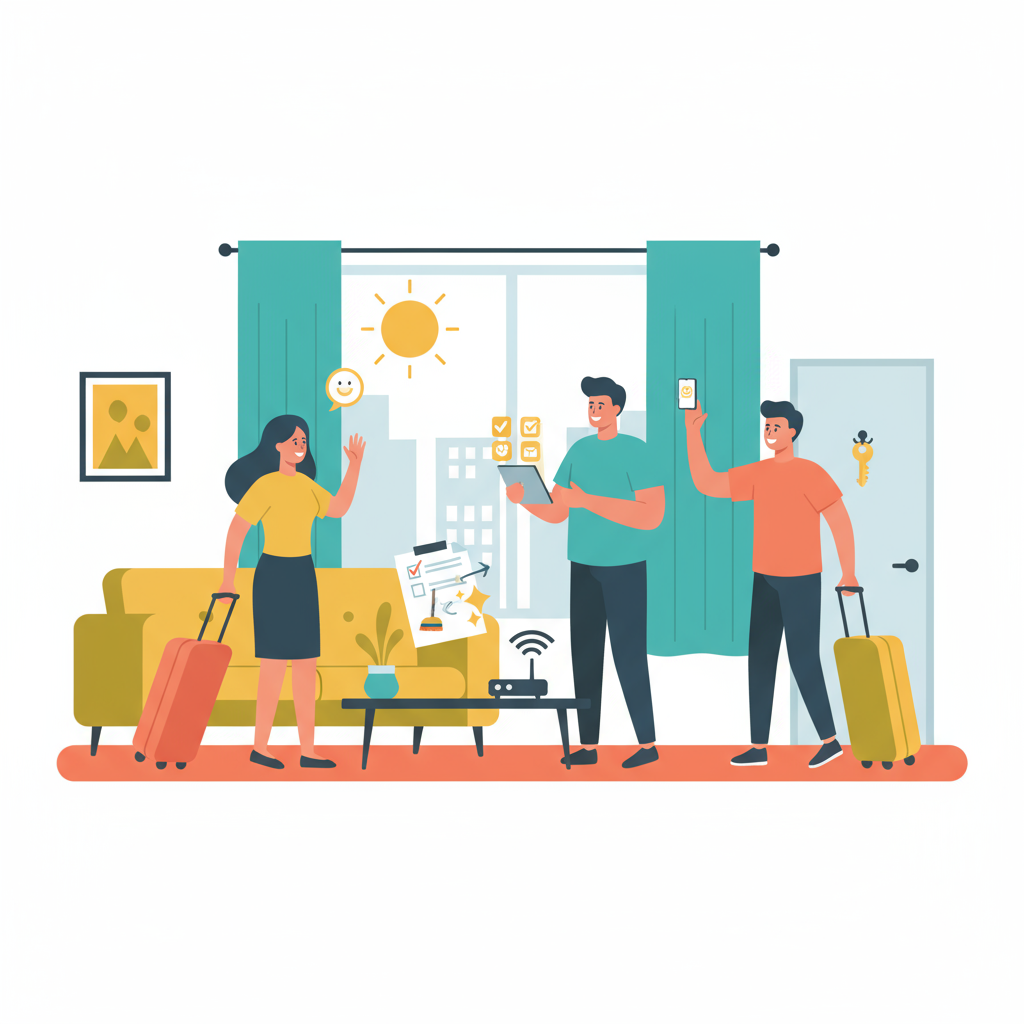
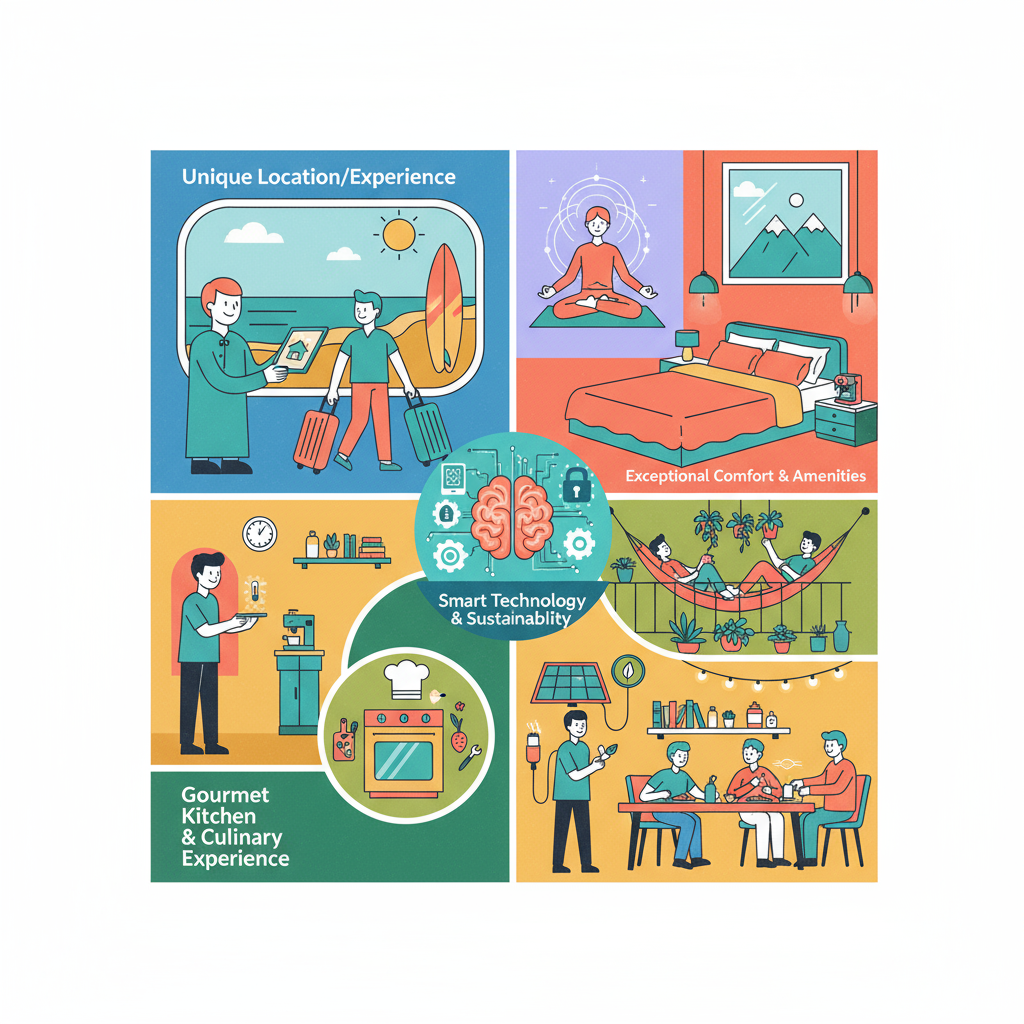





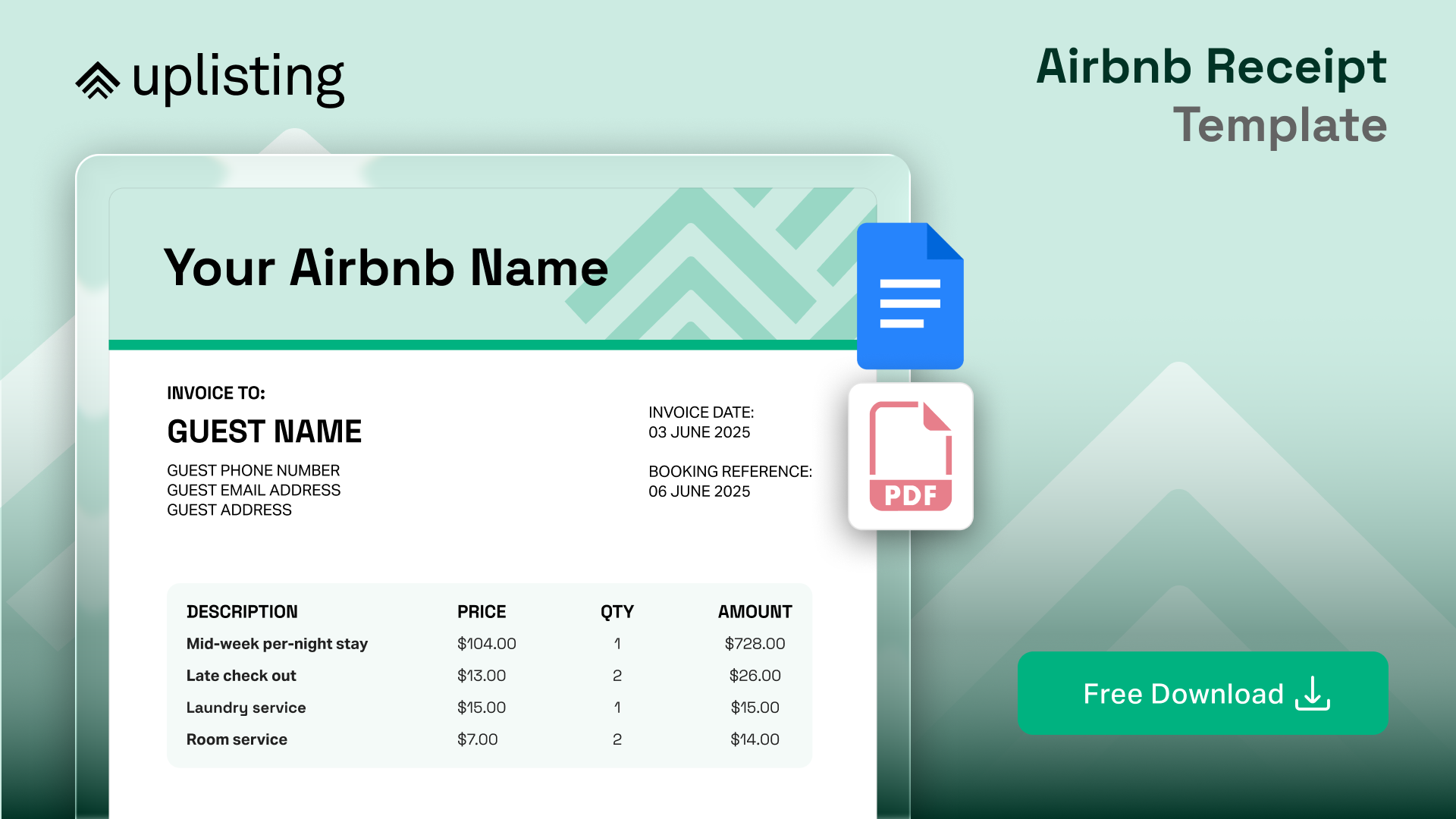

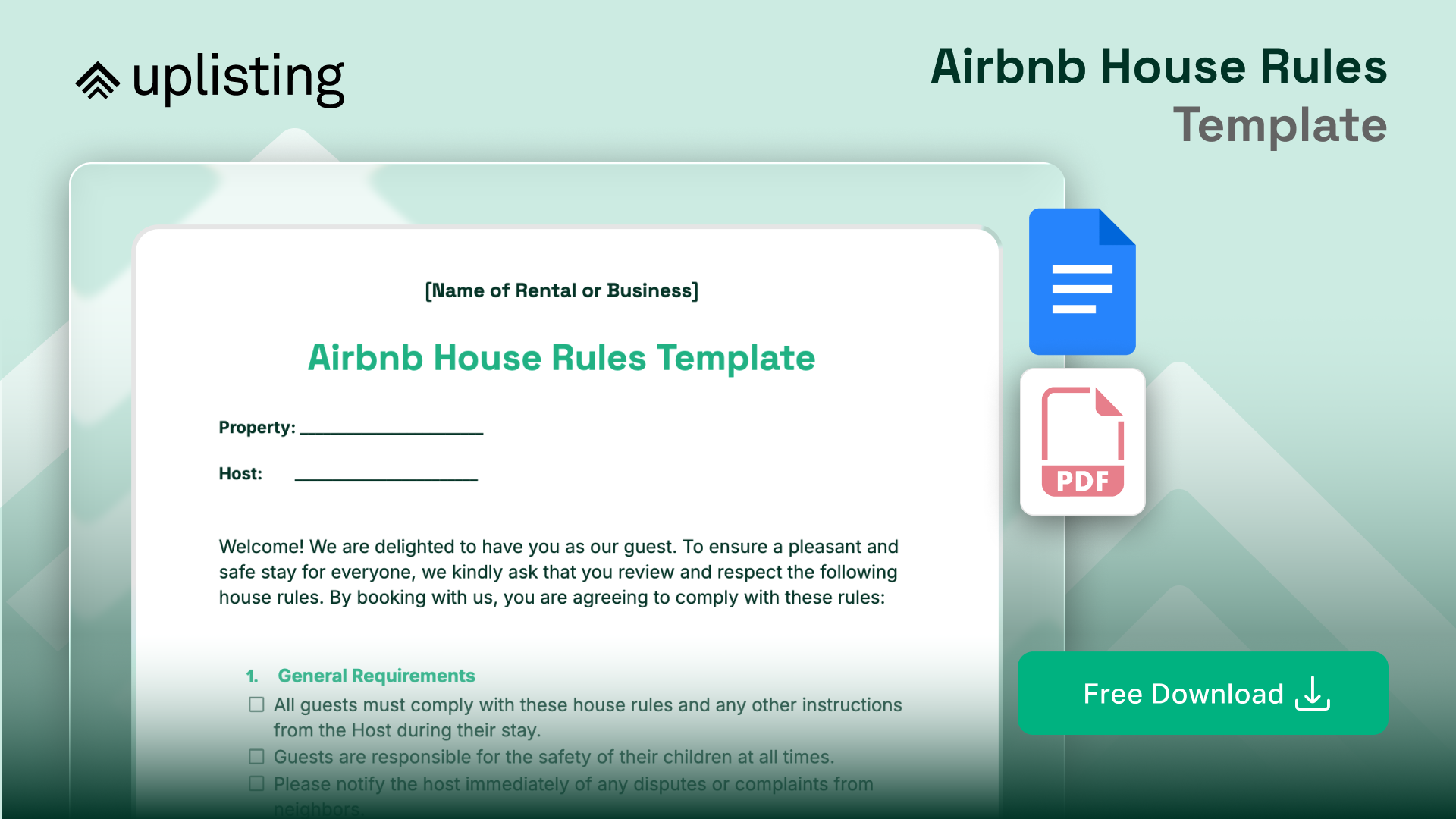

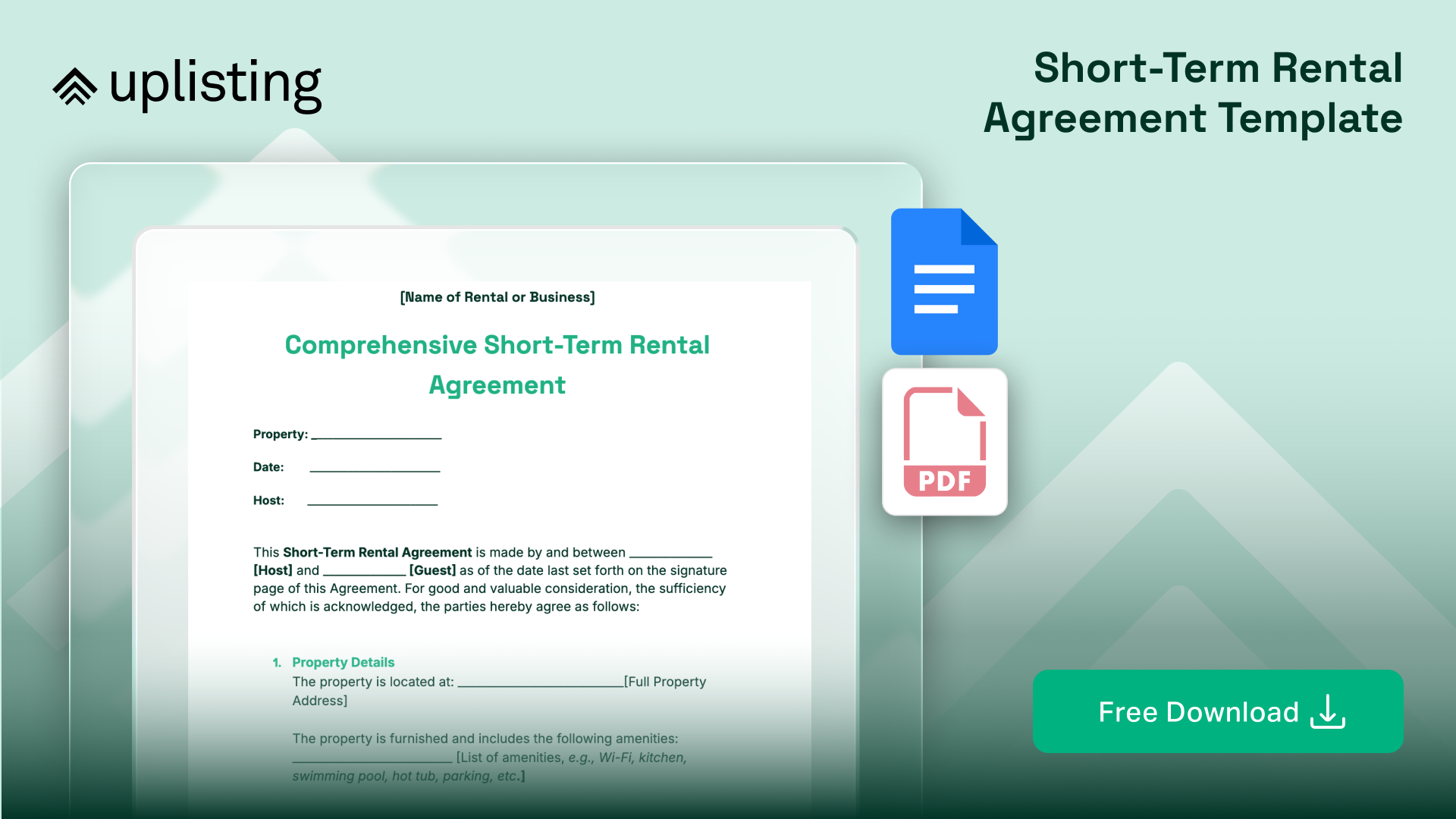


.png)

